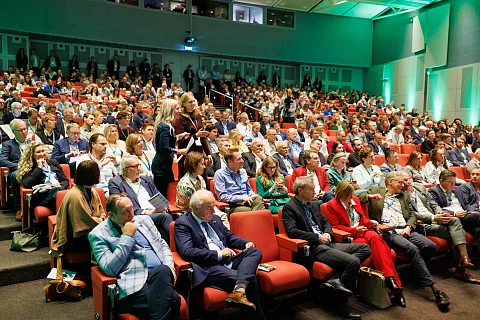Why Unilever, Coca-Cola, and Shell Believe Sustainable Plastic Is Possible
04-11-2025
Hope is once again on the horizon for companies that recycle plastic or produce it from plant-based (biobased) raw materials. Major companies such as Coca-Cola and Unilever are purchasing sustainable plastic for their packaging. Even Shell now has its own 'recycling factory'. Growth funds are granting millions in subsidies to innovative startups, European legislation is set to assist companies, and a new, greener cabinet is emerging.

While various plastic recycling and green chemistry companies went bankrupt or ceased operations over the past year, a positive mood prevailed at the Transition to Circularity conference in Eindhoven on October 30, jointly organized by the Green Chemistry, New Economy Platform (GCNE) and the growth fund programs BioBased Circular (BBC) and Circular Plastics NL (CPNL). The event attracted more than 450 visitors.
"It is possible," also applies to green chemistry
The motto of the conference was therefore: "It is possible." "We have seen that you can win with this motto," says director Marc Spekreijse of Circular Plastics NL, referring to the election victory of D66. "We are also green and truly believe that it is possible. Just start. It’s better to begin slowly now than to be ready when the market really opens up."
The National Growth Fund program has recently awarded another 18 million euros in subsidies to nine projects in the field of plastic recycling, which will leverage 100 million euros in private co-financing. A next round of subsidies is already being prepared, in collaboration with the RVO.
In the field of plant-based chemistry, 90 initiatives are currently underway under the BioBased Circular growth fund program, several consortia have begun working, projects and studies are ongoing, and the program was able to grant 65 projects each 25,000 euros for experiments. "It’s fantastic how it’s going. We will continue this in the coming years," says director Herman Wories.
The Green Chemistry, New Economy Platform is also advocating for a solution of the finance gap for these entrepreneurs, after research revealed it to be one of the biggest problems. "We are digging deep and ensuring better access to funds for these entrepreneurs," says chairman Arnold Stokking.
The Plastics Table puts the Netherlands in first place

The problems in the sector are now well known. Plastic recycling companies, as well as producers of virgin plastic and green startups, cannot compete with cheap plastic from China and the US, leading to closures and failures. The government refuses to provide support and has even scrapped the mandatory blending obligation for recycled plastic in 2027. To find a solution to the issues in the sector, the entire industry gathered this year for a so-called Plastics Table, bringing together chemical companies and plastic producers, recycling and waste companies, as well as green chemistry and environmental organizations.
Former state secretary Steven van Eijck led that Plastics Table. "We agreed at the table: let’s not look at the drama of the past, but at the future. How can we make the entire plastic sector, including plastic recycling and everything related to biobased raw materials, number one in Europe?" he says. "Think in terms of opportunities. The circular economy is the only solution for the Netherlands and Europe. The question is: what is needed for that?"

This article also appears as part of a main article in Change Inc., editor André Oerlemans.
